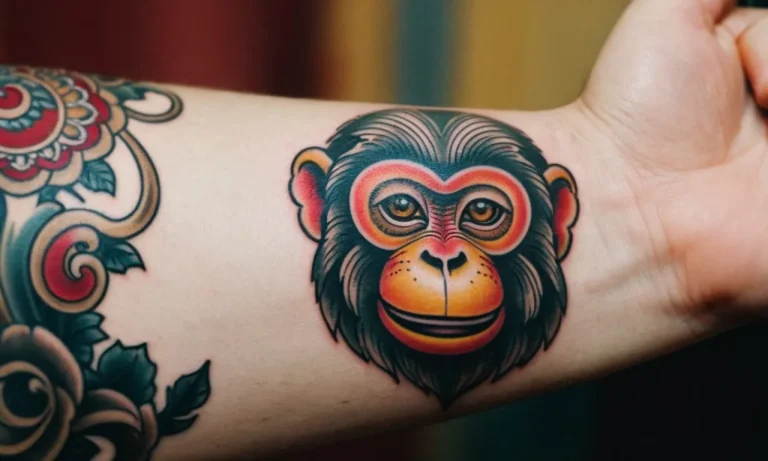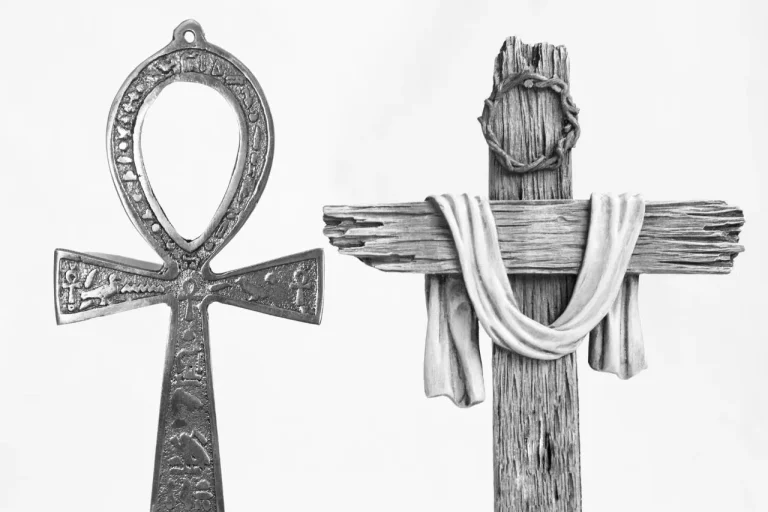What Is The Greatest Gift God Gave Us?
The greatest gift that God has given humanity is a topic that has been contemplated for centuries. Religious scholars, theologians, and everyday people alike have mulled over this question in search of the answer.
If you’re short on time, here’s a quick answer to your question: According to many faiths, the greatest gift from God is life itself.
In this comprehensive article, we will explore the full answer to the question “What is the greatest gift God gave us?” First, we will examine key religious teachings about God’s gifts to humanity from Christianity, Judaism, Islam, Hinduism, and Buddhism.
Next, we will analyze the reasoning behind why life itself is considered the greatest blessing from the divine. We’ll also look at other profound gifts like: our planet and nature, free will and conscience, love and relationships, potential and talents, and more.
Teachings on God’s Gifts in Major World Religions
Christianity and God’s Gift of Grace
Christianity teaches that God’s greatest gift to humankind is the gift of grace made possible through the life, death, and resurrection of Jesus Christ. As the apostle Paul wrote, “For by grace you have been saved through faith. And this is not your own doing; it is the gift of God” (Ephesians 2:8).
God’s grace is his unmerited favor and love freely given to those who put their faith in Christ.
This gift of grace comes through God’s forgiveness of sins which allows for reconciliation and restoration of relationship between God and humans. Christianity emphasizes that salvation cannot be earned through good works or moral effort but is received as a gift when one places their trust in what Jesus accomplished through his sacrifice on the cross.
God’s grace renews and transforms believers to grow in Christlike character.
Judaism and God’s Gift of the Torah
In Judaism, God’s greatest gift is seen as the Torah or divine teachings/commandments found in the first five books of the Hebrew Bible. The Torah provides guidance and instruction for righteous living in covenant relationship with Yahweh, the God of Israel.
The Torah outlines obligations, prohibitions, and boundaries to align human behavior with God’s standards of holiness and justice. It serves as the constitution of the covenant established between God and his chosen people.
Faithfully following the commandments demonstrates love for and commitment to God who delivered the Israelites out of slavery in Egypt.
Therefore, the Torah is regarded in Judaism as the supreme embodiment of divine revelation – a priceless gift and act of grace establishing the ground rules for human existence in connection to the divine.
Islam and God’s Gift of Guidance
In Islam, God’s greatest gift is held to be divine guidance as expressed through messengers and prophets culminating in the revelation given to the final prophet Muhammad. The sacred scripture of Islam known as the Quran literally means “recitation” referring to God’s literal speech revealed through Muhammad.
For Muslims, the Quran represents the apex of God’s guidance delivered to correct human error regarding knowledge of God, proper worship, righteous conduct, and truth about the afterlife. Muslims consider this gift of guidance through revelation to be an act of grace and mercy from God establishing a clear path to live according to God’s will, obey divine commandments, and attain paradise.
Hinduism and God’s Gift of Existence
Hinduism emphasizes that God’s greatest gift is the gift of conscious existence itself manifest in the ongoing cycle of life, death and rebirth (samsara). The divine permeates all of existence encompassing every soul (atman).
Therefore, the opportunity to be born into the created universe provides occasions to overcome illusion and realize one’s eternal connection with the Absolute Reality (Brahman).
The law of karma governs the process of reincarnation which allows beings to resolve attachments and desires which inhibit realization of the divine oneness behind perceived diversity in creation. Therefore, the cycles of mortal existence offer opportunities for self-realization of one’s divine essence made possible by God’s grace.
Buddhism and God’s Gift of Wisdom
While Buddhism does not postulate belief in a divine absolute, it nonetheless emphasizes that existence provides the ground and potential for awakening enlightenment through cultivation of wisdom concerning the nature of self and reality.
Buddha referred to this liberating insight as “nirvana” – freedom from the illusion of a permanent, separate self and attachments to transient phenomena.
Through spiritual discipline, moral conduct, and meditation, ignorance is overcome allowing wisdom to arise concerning the interdependence and emptiness of all entities. This realization of one’s unrealized Buddha-nature eliminates suffering caused by attachment and aversion.
Therefore, embodied existence serves as the necessary basis to receive and embody the gift of enlightenment.
The Gift of Life
Life is the most precious gift that we have been given. Every day we are alive is a blessing and a miracle. The incredible journey of human existence, from conception to birth to death, allows us to experience the wonders of God’s creation.
Life as Our Most Precious Gift
We often take life for granted, but it truly is an amazing gift. Our ability to think, feel, love, laugh, and experience the world is thanks to the gift of life. What an awesome responsibility we have been given! We must make the most of each moment we are given and be grateful for every breath.
As the Bible reminds us in Ecclesiastes 9:9, “Enjoy life with your wife, whom you love, all the days of this meaningless life that God has given you under the sun—all your meaningless days”. Our time here is fleeting, so we must cherish it.
The Miracle of Human Existence
Human life begins at conception – the union of sperm and egg creating a new, unique human being. This single cell contains all the DNA and instructions to grow into an infant, child, and eventually an adult. Consider the complexities of human development:
- 2 weeks: heart starts beating
- 8 weeks: brainwaves can be measured
- 12 weeks: fingerprints are forming
- 5 months: baby can hear and respond to sounds
- 9 months: baby is ready for birth!
The finely orchestrated process of human growth in the womb is awe-inspiring. What an incredible miracle that we come into being and are nurtured and protected as we develop. Truly we are “fearfully and wonderfully made” (Psalm 139:14).
Valuing the Shortness of Life
Compared to eternity, our time on Earth is momentary. The Bible compares our life to a vapor that appears for a little while and then vanishes (James 4:14). None of us are guaranteed tomorrow, so we must make the most of the gift of life we’ve been given today.
| Life expectancy in USA | 78.79 years |
| Life expectancy worldwide | 72.6 years |
With only a few short decades on Earth, how can we live meaningfully? By loving God and loving others. As Jesus taught, the two greatest commandments are to “Love the Lord your God with all your heart and with all your soul and with all your mind and with all your strength” and “Love your neighbor as yourself” (Mark 12:30-31).
Cherish your loved ones. Make time for relationships. Serve those in need. Spread joy. Live fully. Make your fleeting life count for what really matters!
God’s Gift of Planet Earth
Our majestic planet Earth truly reflects the magnificence of God’s creation. From snow-capped mountain peaks to vast ocean depths, nature’s beauty surrounds us. Forests, rivers, deserts – all teeming with a diversity of life specially designed by God to flourish.
As Psalms 104:24 declares: “How many are your works, Lord! In wisdom you made them all; the earth is full of your creatures.”
The Majesty of Nature
From the intricate mechanisms within a single cell to the complex interactions between atmospheric, oceanic and land systems – God’s ingenuity is on full display. Consider the monarch butterfly’s astonishing 2,000-mile migration or the interdependent harmony sustaining a rainforest ecosystem.
Each element bears witness to divine handiwork. Mankind continues working to comprehend the environments and organisms populating this planet, though complete understanding lies beyond our grasp. As Romans 11:33 proclaim regarding Heavenly wisdom: “Oh, the depth of the riches of the wisdom and knowledge of God!”
Earth’s Resources Sustaining Life
God prepared Earth exceptionally to host life. Located the correct distance from the Sun, Earth’s varied climatic patterns regulate temperatures suitable for inhabitants. Water elements including atmospheric moisture, aquifers, lakes and oceans robustly cycle to nourish all living species.
Photosynthesis continually regenerates oxygen levels. Abundant sources like fossil fuels and minerals aid humanity, though sustainable practices are crucial to conserve these provisions for future generations.
We must exercise responsible environmental stewardship over this intentional, fruitful design from the Creator of heaven and earth. As Genesis 2:15 directs mankind: “The Lord God took the man and put him in the Garden of Eden to work it and take care of it.”
Humanity’s Shared Home
Despite disputes over borders and resources dividing mankind, planet Earth ultimately remains collective domain from the Divine. All 7.9 billion global inhabitants share common basic needs like air, water and food sources. Pollution anywhere impacts populations everywhere.
Atmospheric carbon emissions transported worldwide accelerate climate shifts, elevating extreme weather events. Environmental exploitation threatening vulnerable species and critical ecosystems jeopardizes humanity’s future.
Yet coordinated conservation efforts like managing marine reserves, reducing deforestation and expanding renewable energy signify promise. Perhaps goodwill cooperation honoring God’s magnificent Earth while ensuring sustainability will inspire unity across all people, that this pale blue dot in the cosmos be preserved.
As Malachi 2:10 queries: “Have we not all one Father? Did not one God create us?”
The Blessing of Free Will
Choosing Our Own Path
One of the greatest gifts God has bestowed upon humanity is the blessing of free will. Unlike other creations, humans have the ability to make their own choices and chart their own path through life. This means we can decide what we value, who we associate with, what goals we pursue, and how we respond to difficulties.
Of course, free will also allows people to make unwise or even harmful decisions. But most religious traditions teach that God prefers people learn from their mistakes rather than prevent all errors. As the theologian C.S.
Lewis wrote, “Free will, though it makes evil possible, is also the only thing that makes possible any love or goodness or joy worth having.” Rather than micromanaging each person’s moves, God gives space for people to grow.
Personal Growth and Learning
Free will fuels opportunities for personal growth and learning. Every small child desires independence. This emerges from an inborn curiosity and capacity for autonomy. According to a 2017 report, toddlers begin asserting preferences as early as 8 months old.
Healthy development involves increasing physical skills, decision-making power, and self-directed play. Enabling young children to practice independency and self-care, whether choosing clothing or feeding themselves, builds confidence and cognitive capacities.
Although mistakes and messiness occur, adults must tolerate some struggle so children gain competence. Neuroscience confirms that acquiring knowledge through active experience wires more neural connections than passive learning.
Allowing youth to cultivate their gifts down self-selected avenues prepares them for adult responsibilities. Protecting or over-directing offspring can inadvertently stunt maturation.
Taking Responsibility for Our Choices
Since free will gives humans power over thoughts and actions, people must take responsibility for their choices. Blaming others contradicts this divine birthright and leads nowhere productive. As motivational author Steve Maraboli wrote, “It’s time for a new perspective on the ‘blame game.’
You are not a victim of your thoughts, behaviors, and actions. You volunteer for everything you think, do and say.” Exercising free will for constructive purposes directs our finite time toward worthy ends.
Epictetus, an ancient Stoic philosopher, noted that people become disturbed not by events themselves but rather their judgments about events. Adopting an attitude of radical responsibility and intentional response prevents succumbing to circumstances. This builds resilience while avoiding stagnation.
Since all humans err, self-compassion helps people bounce back from poor decisions, align values with behaviors, and continue progressing.
The Gift of Love
Loving Connections with Others
God’s greatest gift to us is the ability to form loving connections with others. When we open our hearts to friends, family, and even strangers, we tap into the divine power of love. Scientists have proven that humans crave belonging and intimacy.
Our brains release hormones like oxytocin when we hug, touch, or spend meaningful time together. God wired us for community and relationship. His design draws us into friendship, marriage, parenthood, and other bonds.
As we share life experiences, laughter, tears, and time with loved ones, our souls knit together. We glimpse the unconditional love God has for us. The Bible says “Let us love one another, for love comes from God” (1 John 4:7).
His love flowing through us enables selfless caring, empathy, compassion, loyalty, and sacrifice for others’ wellbeing. There is no greater joy than giving and receiving love.
Caring for Family and Friends
Loving family and friends is a precious gift from God. In healthy families, parents sacrificially meet children’s needs and nurture their growth. Kids reciprocate love through obedience, assistance, and affection. The home becomes a haven where members support each other through good and bad times.
According to a Pew Research study, over 50% of adults get regular emotional and financial support from family. Friends also hold a special place in our hearts. We share secrets, laugh over inside jokes, and create memories through activities. The rapport between best friends amazes researchers.
One study found friendship quality directly impacts health. God puts people in our lives to love us despite our quirks and flaws. Their caring reflects His perfect love.
Romantic Love and Partnership
For many people, romantic love represents life’s pinnacle. Falling in love activates pleasure sensors in the brain, producing a natural high. Partners experience increased energy, focused attention, craving for intimacy, and readiness to sacrifice for each other when in love.
But true love is more than feelings. Lasting couples move beyond attraction into committed partnership. They weather conflicts, tragedies, and time’s passing together. While communicating openly and frequently.
According to Gottman Institute research, couples who stay married have a 5:1 ratio of positive to negative interactions. They choose to love one another even when annoyed. Romantic love emulates Christ’s selfless, faithful love for people (Ephesians 5:25).
Through patience, forgiveness, empathy, and sacrifice, lovers mature in character. Few things make life sweeter than an enduring bond with your soulmate.
God’s Gifts of Talents and Potential
Unique Skills and Abilities
God has blessed each of us with special talents and abilities that make us unique. Some people are gifted musically and can sing beautifully or play instruments skillfully. Others have talents for writing, public speaking, athletics, painting, designing, or working with their hands.
There are so many possibilities when we consider the incredible diversity of skills people possess!
The Bible encourages us to use our talents for God’s glory: “There are different kinds of gifts, but the same Spirit distributes them. There are different kinds of service, but the same Lord. There are different kinds of working, but in all of them and in everyone it is the same God at work” (1 Corinthians 12:4-6).
Our talents are gifts from God, and we can honor Him by developing them fully and sharing them generously with others.
Capacity for Growth and Self-Actualization
Along with specific talents, God has given us an amazing capacity to learn, grow, and reach our full potential. Unlike any other living creature, we humans have the ability to set goals, expand our knowledge and skills, reflect on our experiences, and intentionally shape who we become over a lifetime.
This is an incredible gift! God wants us to embrace opportunities for growth and self-actualization, as this helps us become the people He created us to be. As we grow into our potential, we are better equipped to fulfill God’s purposes and make a positive difference in the world.
The Bible urges us: “Do not conform to the pattern of this world, but be transformed by the renewing of your mind. Then you will be able to test and approve what God’s will is—his good, pleasing and perfect will” (Romans 12:2).
Our capacity for growth allows us to align our lives with God’s perfect will.
Opportunities to Contribute Our Gifts
Along with talents and potential for growth, God surrounds us with opportunities to use our gifts to serve others. Our skills and abilities were never meant to benefit only ourselves.
As Ecclesiastes 4:9 states, “Two are better than one, because they have a good return for their labor.” God has designed us to need each other. He provides opportunities through relationships, jobs, volunteer roles, churches, and communities for us to contribute our talents in ways that bless those around us.
What an amazing privilege! We get to participate in God’s work by serving others with the unique gifts He has given us. As we step out in faith and generosity, our talents multiply in impact as they meet real needs and make a difference in people’s lives.
The greatest gift God has given us is the opportunity to gratefully honor Him with our talents, growth, and service. As we allow God to work through us, our gifts bring glory to Him and become an immense blessing to the world.
Conclusion
In examining the question “What is the greatest gift God gave us?”, there are many profound blessings from the divine worth recognizing. While life itself is arguably the most fundamental gift, our planet, free will, love, talents, and more can also be considered among God’s greatest gifts.
Although people may differ on exactly which gift is the absolute greatest, taking time to appreciate these blessings can help us live fuller, more purposeful lives. No matter what faith or creed we follow, giving thanks for these divine gifts connects us to the source of life and each other.







